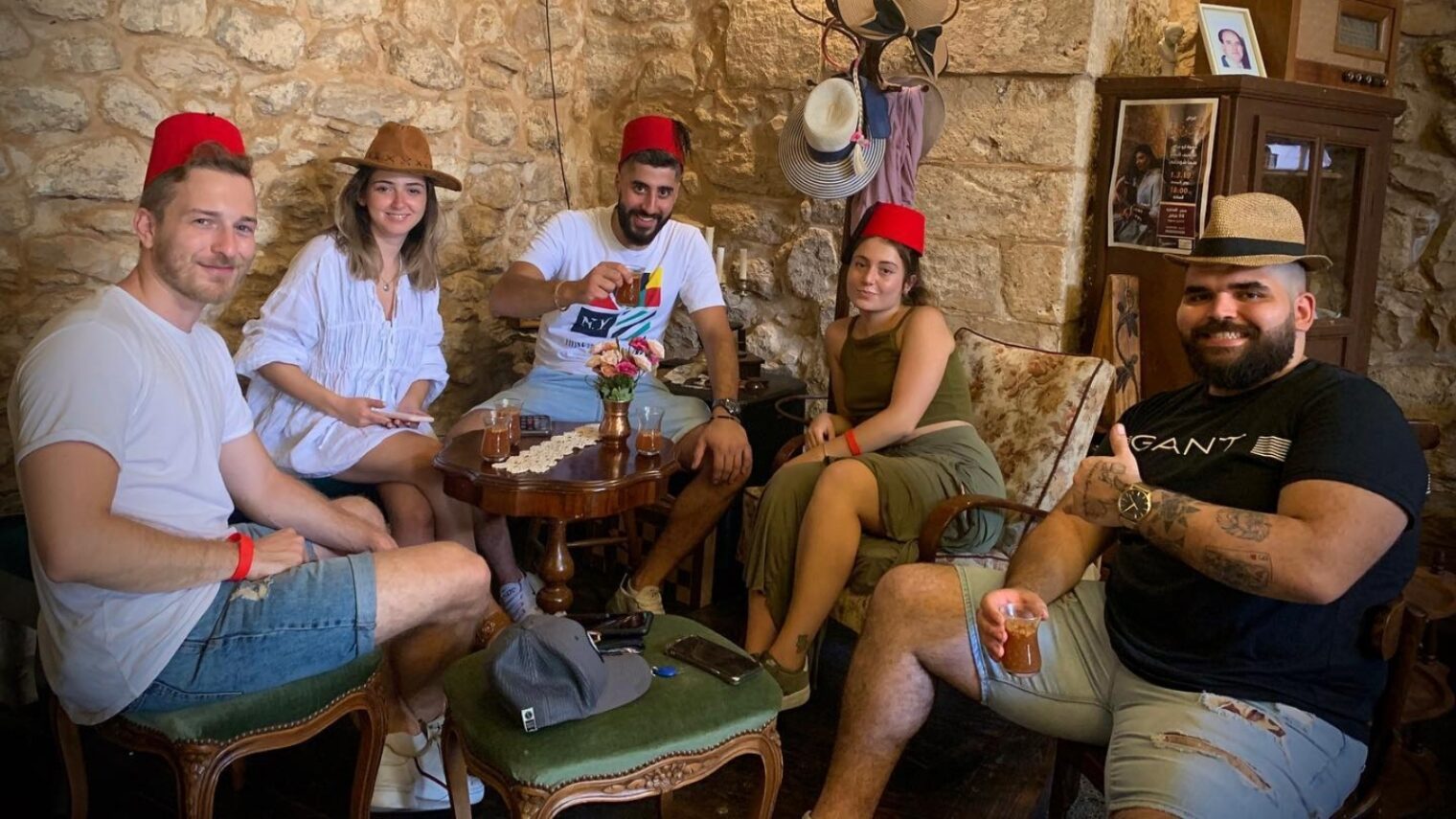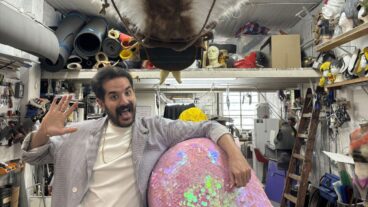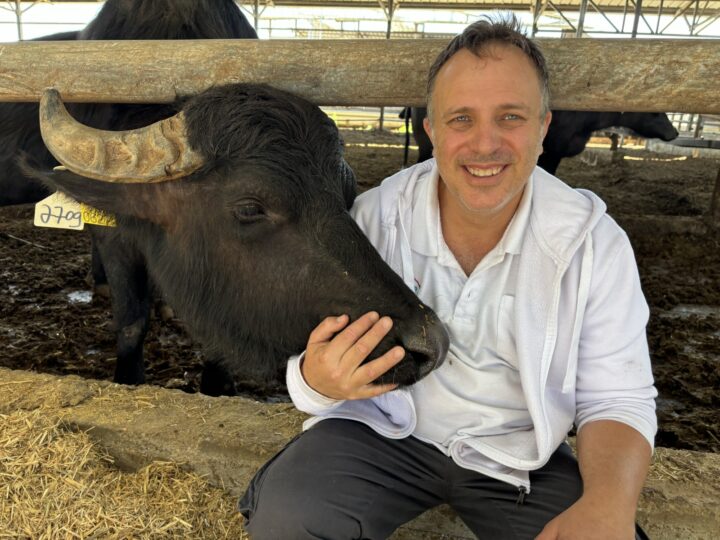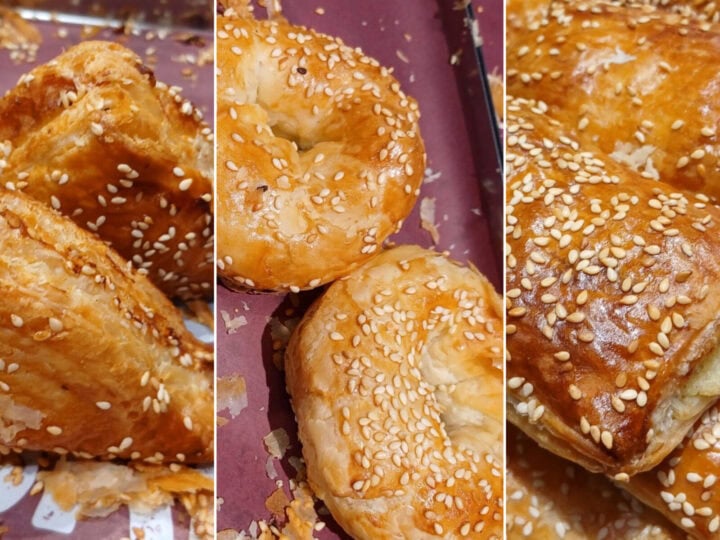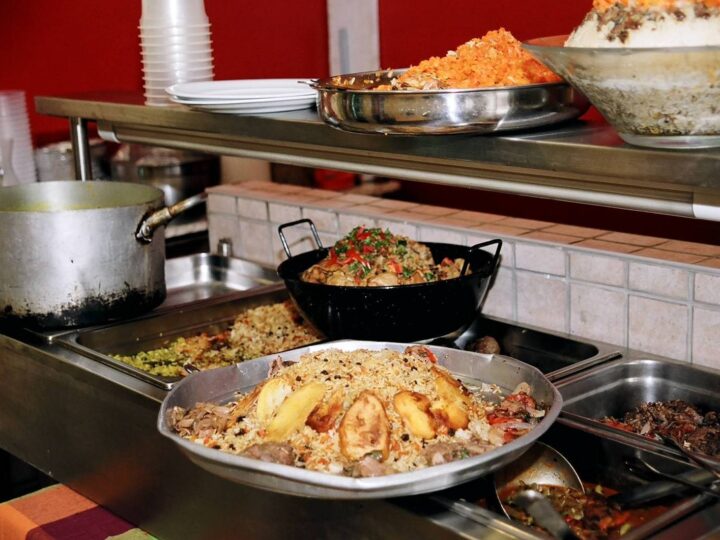There’s a whiff of woody cinnamon as you enter Café Abu Salem in Nazareth’s Old Market quarter. The source of this spicy aroma is an orange-tinted tea being prepared in a large silver kettle over a gas flame.
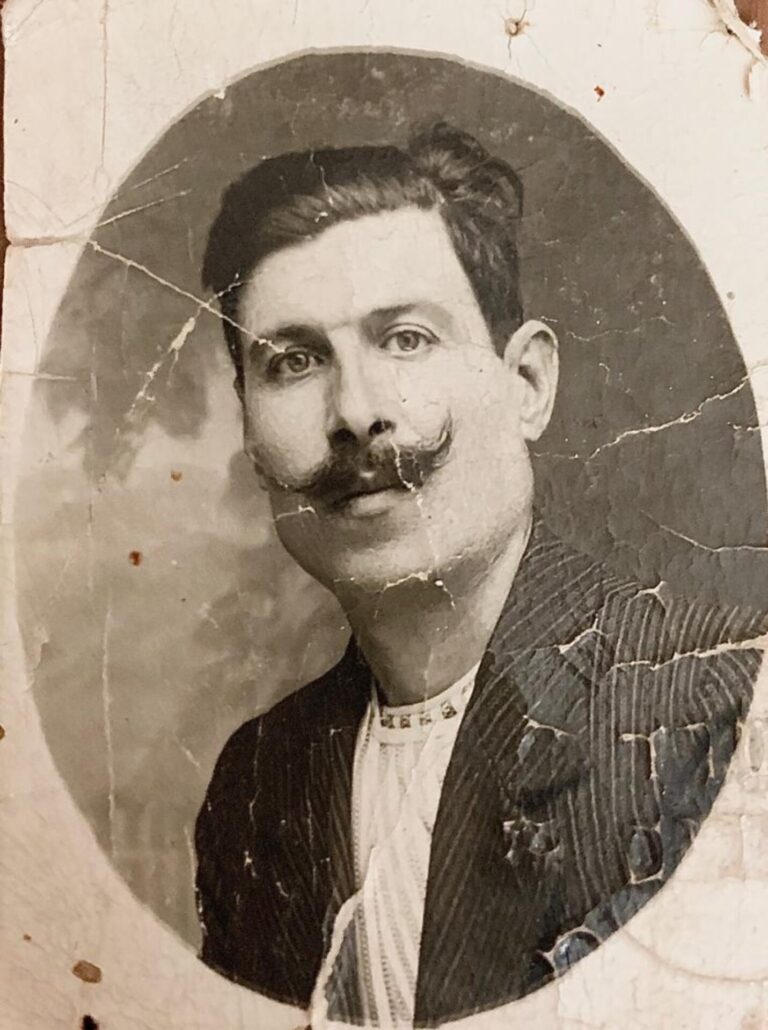
Exactly as it has been done since Andraos Abu Salem opened his coffee shop in 1914 when the country was still under Ottoman rule.
The name of this baladi (local) drink, as it is listed on the menu, is Aynar, and it’s served in traditional tulip-shaped Turkish teacups with a sprinkling of chopped walnuts on top.
Wassem Abu Salem, the 45-year-old owner and grandson of the founder, is grinding the secret spice mix for the drink with a pestle.
He tells ISRAEL21c that the drink originates in Turkey and is a trademark of the family-run café.
Shalkan, another baladi tea, is made by infusing dried hibiscus petals with lemon and cinnamon.
“It was called the drink of the pharaohs and you see it being served in so many Egyptian movies on TV. It’s very healthy, as it lowers blood pressure,” he says.
Cinnamon tea is also very much a part of Arab culture and is given to mothers of newborns to strengthen their immune system, which passes on to the baby when nursing.”
Sweet Arabic coffee with cardamom is naturally also served at Café Abu Salem, points out the Nazareth native.
Preserving the past
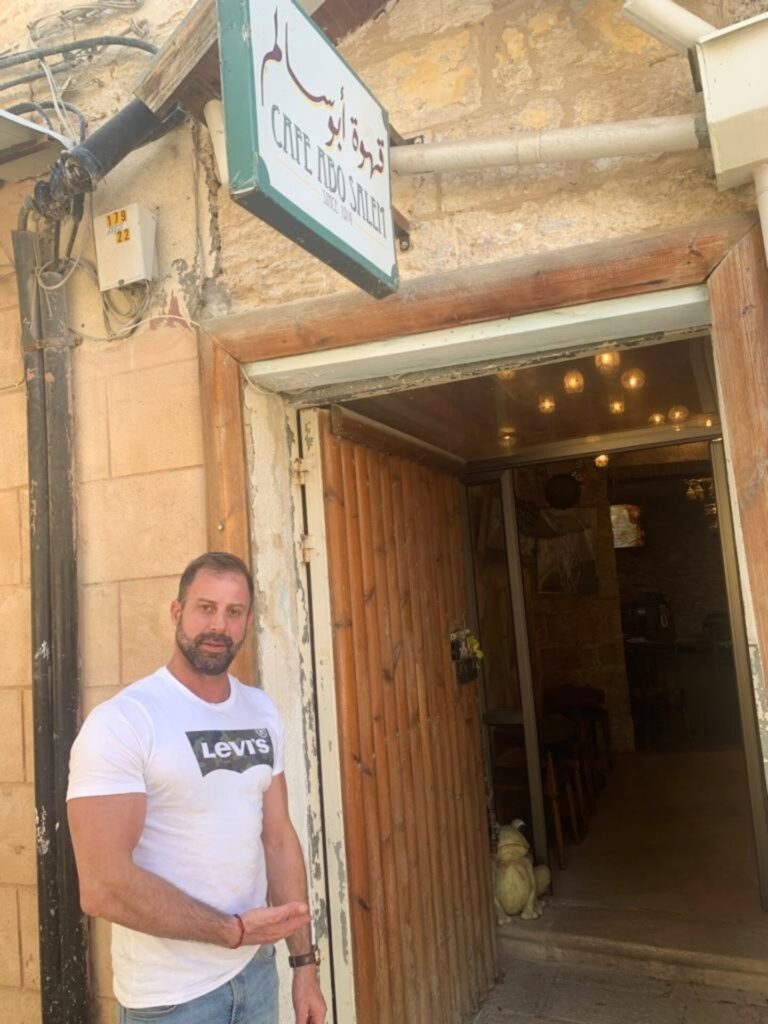
Wassem Abu Salem may look hyper modern in his skinny jeans and trendy moccasins, but preserving old traditions is a big part of why he decided to take over the café in 2007.
“It was so important for me to keep the original stone walls and furniture and many of the decorative items you see here. My family is very proud of this.”
The result is what looks like a perfect movie set for an Ottoman-era film.
A couple of red fez hats are spread around on the tables as if left carelessly by a patron, an original wireless stands on a wooden sideboard, a candelabra and packs of old cards and game boards on the low tables.
The soundtrack is soulful Arabic music, which adds to the atmosphere of nostalgia.
A place to sip and relax
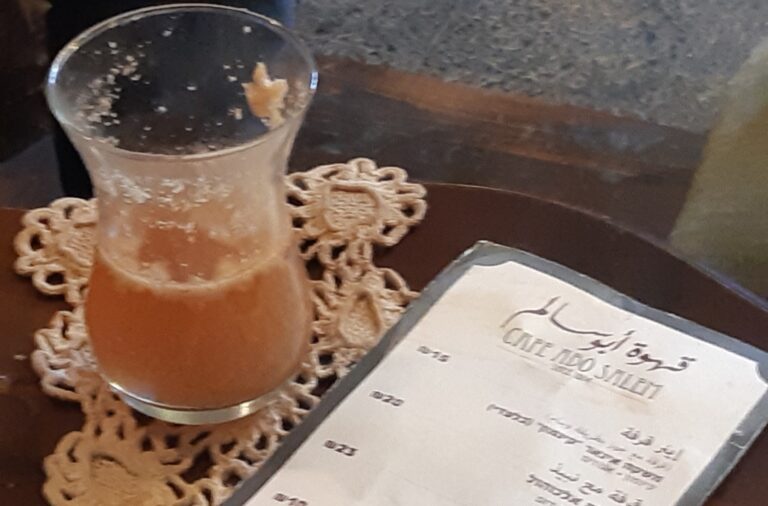
Abu Salem has also kept true to the original concept of an Arab-style café by not adding food items to the menu.
“This is where people come and relax away the hours with friends, drink coffee or tea, talk, laugh and play sheshbesh [backgammon] or cards,” he explains.
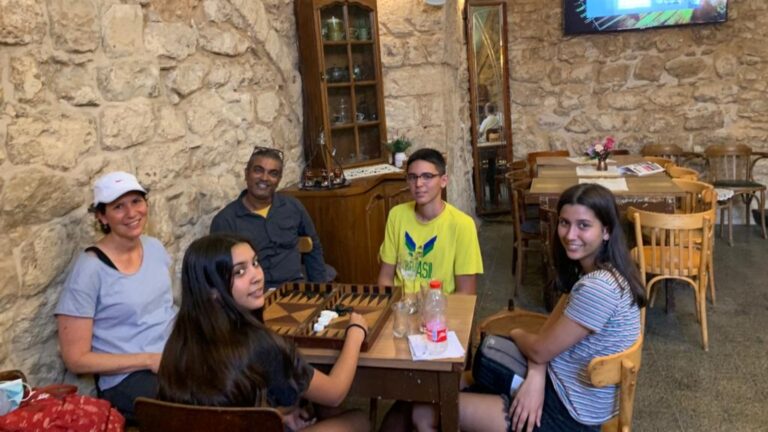
One tradition that Abu Salem did change immediately after he took over the business was to allow female customers.
“It is hard to believe, but no women were allowed in here until Wassem took over,” recalls Nawal, who lives nearby and has come to drink coffee with her daughters.
She tells ISRAEL21c that when she was a child, her mother would sometimes order her to run to the café and inform her father to come home immediately!
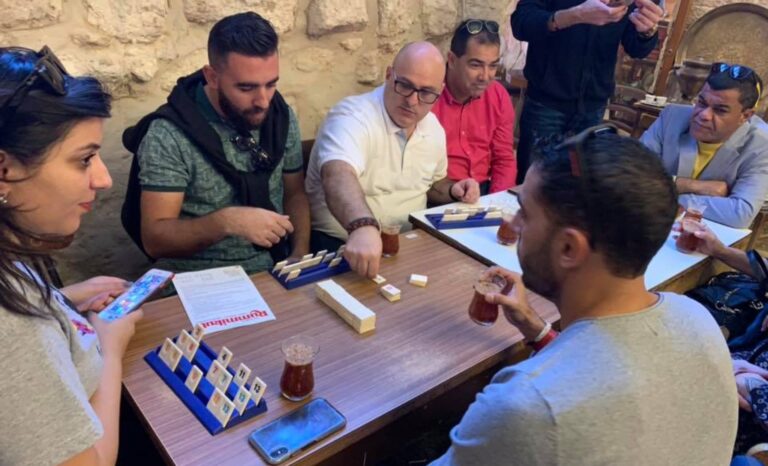
Another group visiting the café are pensioners from the center of the country on a touristy day out. They quickly get into the mood of the café; the men take their place on the small stools and start playing a lively game of backgammon while their wives chat and drink tea at tables behind.
On the map
Abu Salem is a born raconteur and rattles off information to his guests. He explains the story behind the huge, sparkling three-tier chandelier that hangs from the center of the ceiling, which he commissioned from a craftsperson in Turkey.
“On the top tier is the name of my grandfather engraved with the dates he founded and ran the café from 1914 to 1963. The second tier has the name of my father, George, and the dates he ran the café from 1963 to 2004. The third has my own name with no end date and I hope it will be for a very long time.”
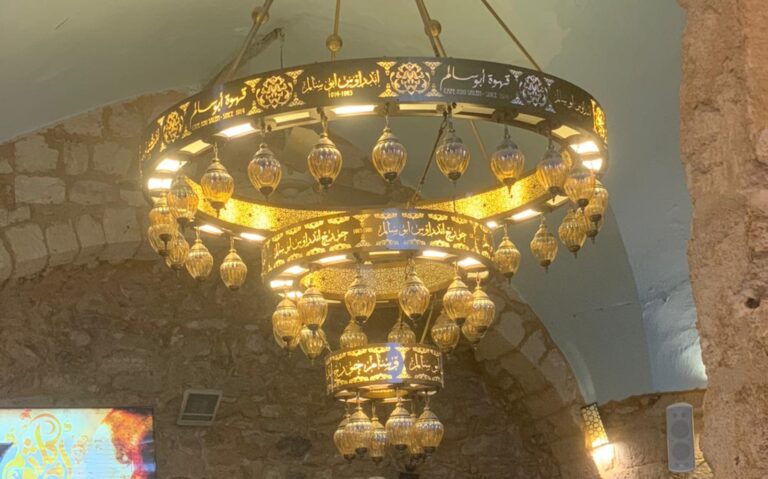
Despite trying to keep time standing still, much has changed at the market, Abu Salem acknowledges. From being the primary daily market in the largest Arab city in the country (80,000 to date, of which 39 percent is Christian and the remainder Muslim), many of the stores are now shuttered.
“Now there are mainly hostels and small hotels for tourists. Some jewelry, homeware and spice stores and a few cafes and restaurants catering for visitors.”
On a wall near the entrance of the café is a large family tree of the Abu Salems, who came to Nazareth from Lebanon many generations ago.
Under it is a colorful poster pinpointing the oldest companies in the world still in business. It was sent to Abu Salem from a friend in England and he is still very excited about it. “I couldn’t believe that they listed our coffee shop on this map… alongside the Arab Bank in Jordan from 1930 and the Maritime & Mercantile International company of Bahrain from 1883.”
“Maybe a listing in the Guinness book of records will come next,” he adds with a laugh.




